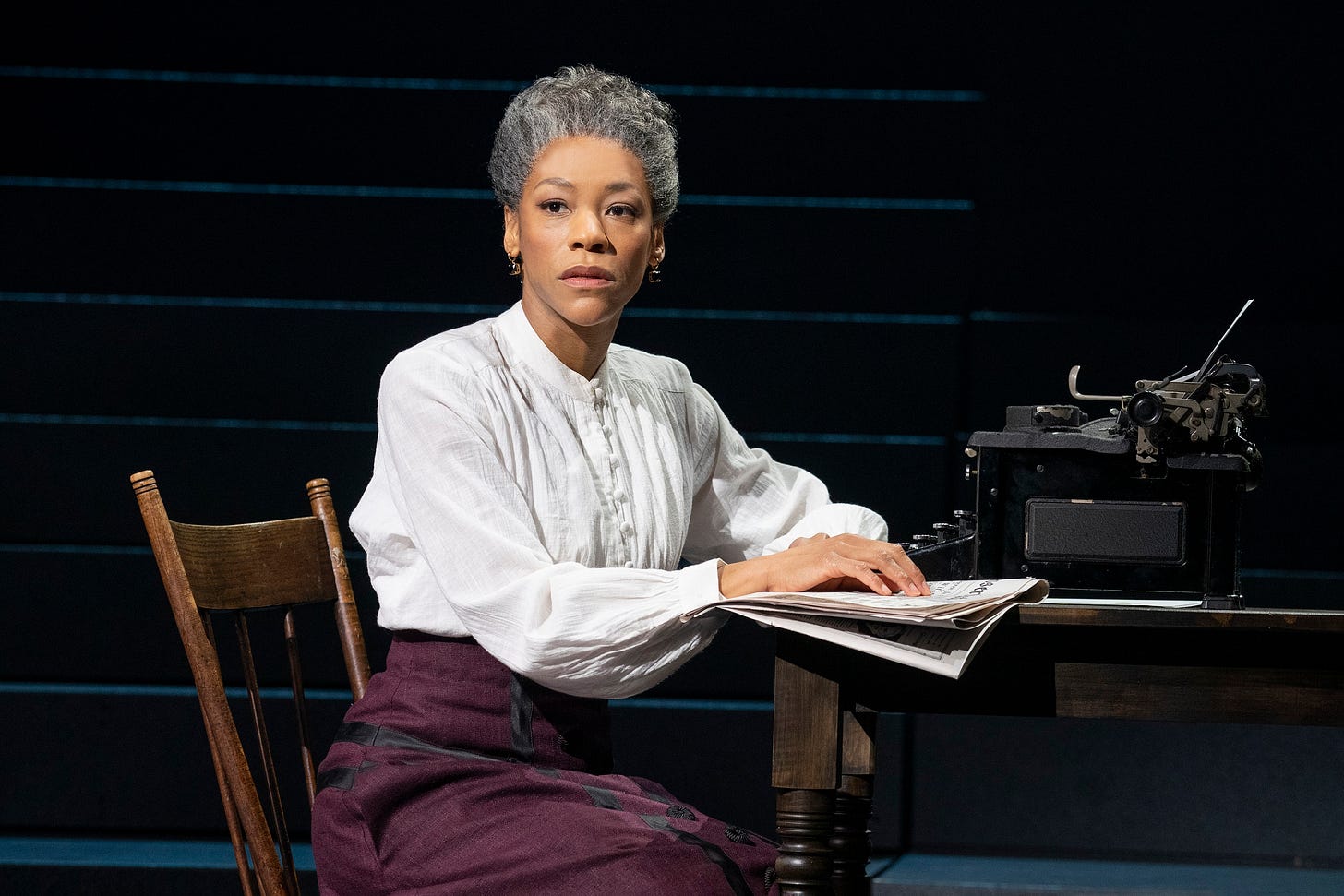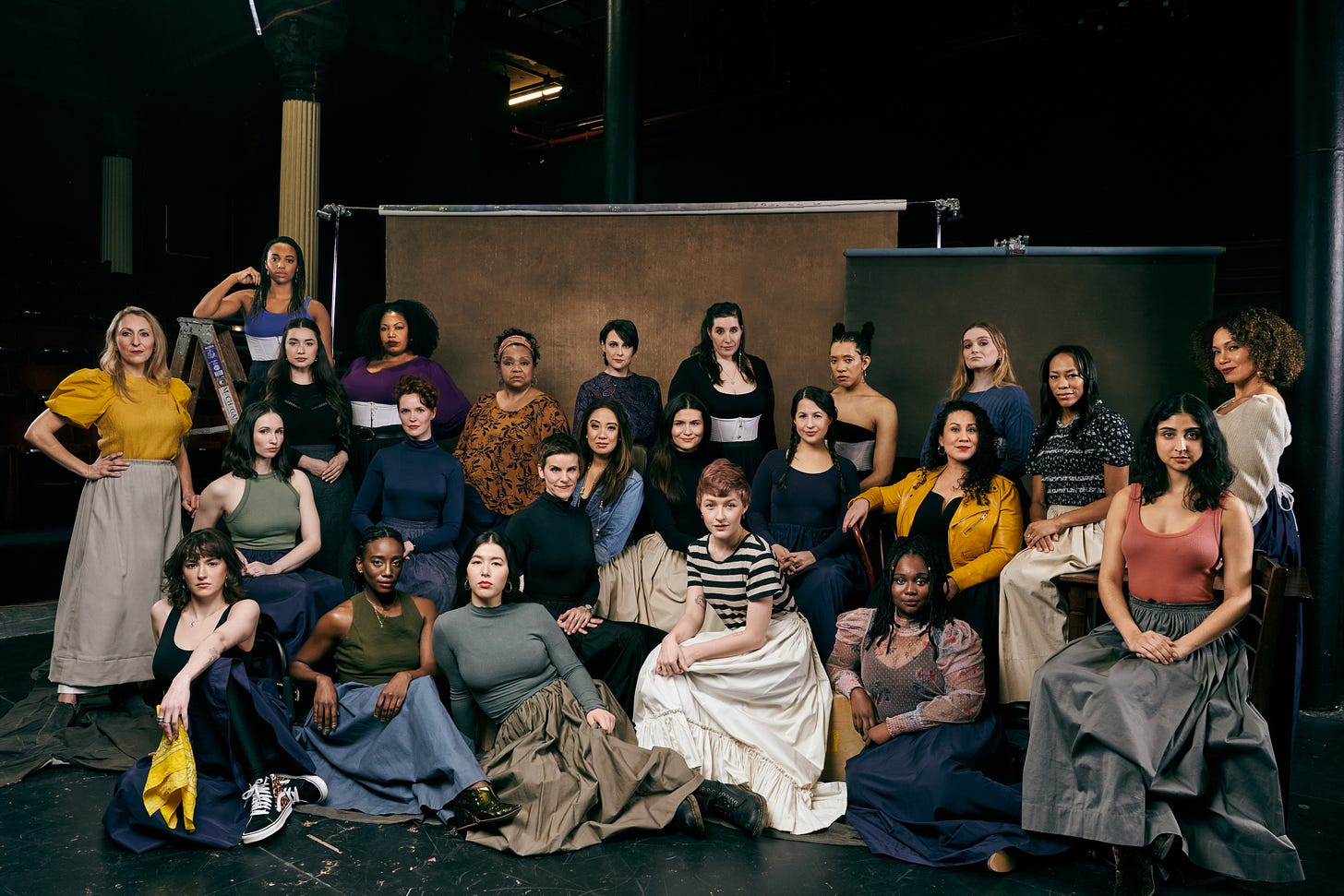How are things changed?
A conversation with three of the women behind "Suffs," the pathbreaking hit musical exploring the suffrage movement's victories, failings, and unfinished business
Nikki James as Ida B. Wells in “Suffs.”
The other day, I asked Shaina Taub, the creator and star of the new musical “Suffs,” what she remembered learning about the women’s suffrage movement in school.
She doesn’t remember learning about it. And she’s probably not alone.
The story of how women gained the vote is given short shrift in many history texts. But, just as important, the tale that is told tends to be incomplete. For the story of the suffrage movement isn’t only a case study of an oppressed group of people organizing to claim their due; it is also the story of a movement whose mostly white leadership was especially alive to one form of inequality, that of gender, and largely blind to another, that of race. Women as a whole did not win the vote in 1920 with the passage of 19th Amendment. White women did. And it took until the 1960s, with the passage of the Voting Rights Act, for that right to be realized in living practice for all races.
That is just one of the omissions in the Official American Narrative that “Suffs,” which is showing at the Public Theater in New York, seeks to correct. “Suffs” is a brilliant, moving, joyous, haunting, and honest account of the suffrage movement that is daring something bold: trying to tell honest history and trust that the audience can take it, can be inspired by a righteous struggle even if that struggle was full of wrongs.
At a time of book bans and a cynical backlash against critical race theory and other such revolts against candor about our past, “Suffs” makes a forceful contrary wager: it declares that you can still love a country and the struggles that made it while telling the truth about it. It is honest history as art.
I have now seen “Suffs” twice at the Public, which is a place where shows have a history of leaping to Broadway. Last week, I got to speak with three of the forces behind the production: the playwright, lyricist, and composer Shaina Taub, who stars as Alice Paul; the director, Leigh Silverman; and Nikki James, who plays Ida B. Wells.
Our conversation is below.
“We're making something for the present that hopefully will stand the test of time”: a conversation about “Suffs”
The company of “Suffs.”
ANAND: It's 2022, and we're living in the wake of intersecting movements challenging power structures, from #MeToo to Black Lives Matter to the anti-fascist movement against Trumpism. As a country, we're facing existential questions about whether or not we'll sustain liberal democracy and who gets to participate in it. What do you think the story of the fight for suffrage says about the moment in which “Suffs” lands?
LEIGH: While we've been working on the show, I've been struck by how history repeats itself. I'm moved by the reminder of what we take for granted today — certainly voting rights in this country. Hopefully, the show is giving people the opportunity to revisit and appreciate all of the struggles we've gone through and are continuing to go through for the sake of progress. That the fight is ongoing, long, and worthy of our time and attention.





